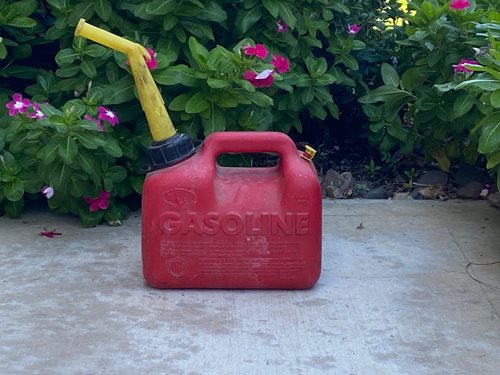
Recently, I’ve been listening to a lot of documentaries about fallen civilizations. One of the unifying characteristics that caused many of these civilizations to disappear is energy. Because many of these were ancient civilizations, the energy came in the form of food. It occurred to me that there were many similarities from these failed civilizations of the past, that run parallel with many of the issues we deal with today. There are food issues, energy supply issues, etc., that all lead to the breakdown of civilization, sometimes bringing things to the point of war.
These factors, and my role today - which is to produce the maximum efficiency from my Freightliner Cascadia, while participating in the Team Run Smart Program - made me think of what one gallon of fuel means. There is another, less publicized role, that I participate in, which is going out to fleets and training their drivers in delivering the maximum efficiency from the newer, more technologically advanced trucks that their fleets have purchased.
This got me thinking about one gallon of fuel. In 2019, in the United States, there were nearly 229 million licensed drivers. If each of these drivers saved one gallon of fuel a week, that would equal 229 million gallons of fuel! That figure represents drivers in all kinds of vehicles, from cars, all the way up to semi-trucks. To give you a visual of what 229 million gallons looks like, it would represent just shy of 347 Olympic-sized swimming pools filled with fuel, each week. The largest supertankers transport two million barrels of oil. There are 42 U.S. liquid gallons in one barrel of oil; to put more of a visual on this representation.
What it really comes down to is “death by a thousand needles”. Each person contributes to the success or failure of civilization, as we know it. One of the problems is, most people are waiting for someone else to do something about a perceived, or real problem. In actuality, each of our individual actions has an impact on the success, or failure, of civilization. There are also times when somebody does do something to make a change, and the population does not fall in line to participate. A fine example was the NMSL (National Maximum Speed Limit,) a declaration by the Federal Government of the United States, that effectively prohibited speed limits larger than 55 miles per hour. It was initiated in response to the oil price spikes, and supply disruptions encountered during the 1973 oil crisis, and remained in effect until 1995. At the time, people revolted by exceeding the national 55 miles per hour speed limit. During this time, breaking the speed limit was glorified by movies such as “Cannonball Run” followed by songs like “I can't drive 55” by Sammy Hagar. As you can see, public support was not taking measures to reduce our nation's fuel consumption.
The federal bureaucracy had hoped this initiative would reduce gasoline consumption by 2.2%. The actual savings were estimated at between .5% and 1%. Over time, the NMSL was modified, and in 1987 it allowed speeds up to 65 mph on certain, limited-access rural roads. In 1995, Congress repealed the NMSL, fully returning speed limits, setting authority to each individual state. There was only one other time in the history of our country where the federal government established a national speed limit, and that was during World War II. This was called the “Victory Speed Limit” of 35 mph, in an effort to conserve gasoline, and rubber, for the American war effort. The “Victory Speed Limit” lasted from May of 1942 to August 14, 1945, when WWII ended.
The question is: “Why do we, as individuals, need the mandate to get us to conserve the precious resources we receive from our planet?” I know this sounds like a “Go Green Tree Hugging” blog, but how we impact the land that our children will live on, in the future, is something to think about. Consider how simple it would be for each person to conserve one gallon of fuel a week through our actions. The old saying of “waste not, want not” comes to my mind as I close this article this week. Let's all do our part to conserve energy.